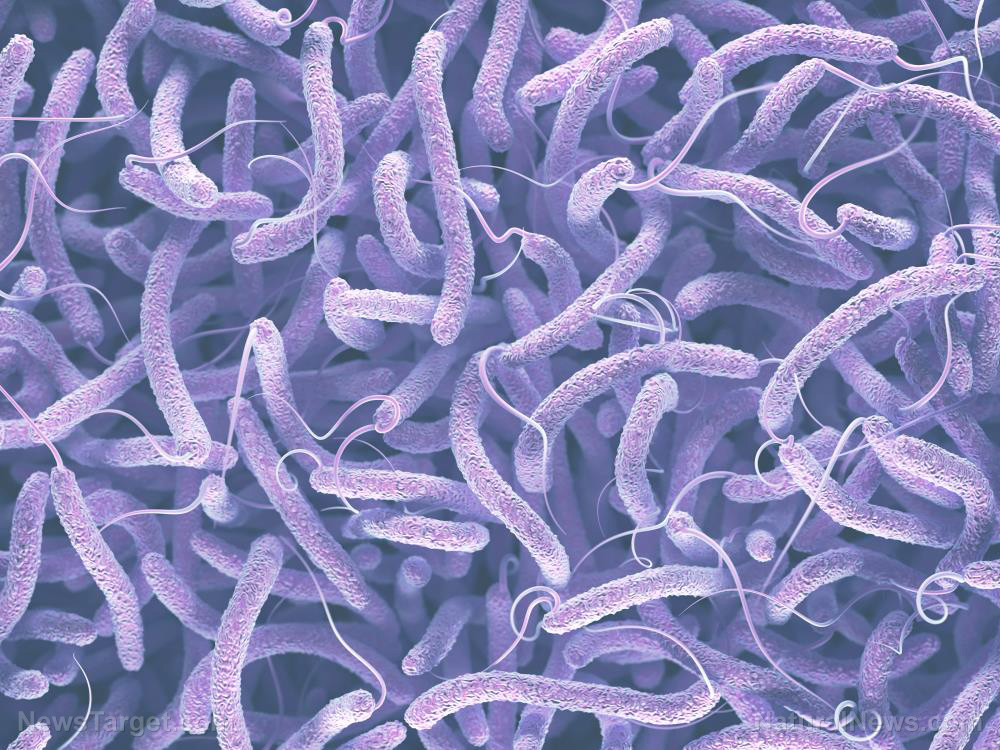Scientists identify unique bacterium in the microbiomes of elite athletes that can improve the exercise capacity of sedentary people
04/14/2020 / By Franz Walker

Looking to increase your energy for exercise or just any sort of physical activity? The answer might lie in one particular type of bacterium. A recent study has illustrated how a specific kind of bacterium present in the guts of athletes could one day be used as a supplement to improve exercise capacity and boost energy.
Scientists at the Joslin Diabetes Center, in Boston, are looking at the bacterium from the genus Veillonella and how it helps give athletes an extra boost of endurance. The researchers believe that the bacterium could be used in a probiotic supplement that could help those who struggle to exercise, such as Type 2 diabetics.
The researchers are pulling from a study begun in 2015 when a team from Harvard Medical School found V. atypica in larger than normal quantities in the guts of athletes participating in the Boston Marathon. The team found that V. atypica feeds on lactate, a substance that the muscles produce in large quantities as a by-product of turning glucose into energy. In the process of doing so, the bacterium also releases a substance called propionate, which gives athletes an extra energy boost.
Proprionate boosts energy
When the researchers first looked at V. atypica, they thought that its consumption of the excess lactate in the body was the main means by which it helped athletes. However, after consulting with other researchers at the Joslin Diabetes Center and exercise physiology experts, they learned that lactate build-up is generally no longer considered to be the cause of muscle fatigue.
“Our immediate hypothesis was that it worked as a metabolic sink to remove lactate from the system, the idea being that lactate build-up in the muscles creates fatigue,“ says co-author Alexandar D. Kostic from the Harvard Medical School. “But talking to people like [Joslin clinical researcher] Sarah Lessard, and other people in the exercise physiology field, apparently this idea that lactate build-up causes fatigue is not accepted to be true. So, it caused us to rethink the mechanism of how this is happening.”
It was upon their further study that the researchers found that V. atypica also produced propionate after metabolizing lactate. Further tests then showed that mice who had received propionate gained increased running ability.
“It’s very clear. It creates this positive feedback loop. The host is producing something that this particular microbe favors. Then in return, the microbe is creating something that benefits the host,” said Dr. Kostic. “This is a really important example of how the microbiome has evolved ways to become this symbiotic presence in the human host.”
Helping people who struggle to exercise
The discovery that the propionate from V. atypica helps boost energy for exercise has interesting implications, especially for helping patients who struggle at physical activities. Exercise has long been recognized as being important to overall health, especially for our hearts. However, many people with metabolic disorders such as Type 2 diabetes find it hard to exercise.
Direct dosing of propionate doesn’t work however, as the digestive juices in the gut would break down the short-chain fatty acid before it could take effect. In order to address this, the researchers are thinking about introducing V. atypica into the body through the use of probiotic capsules. According to the researchers, doing so could give people with metabolic diseases the energy they need to start exercising. (Related: Certain probiotics found to improve athletic performance.)
However, before any development of V. atypica based probiotics can proceed, further testing needs to be done on people, and not just on mice.
“We will need more human studies to show if it is worth taking supplements though,” stated Tim Spector, a professor of genetic epidemiology at King’s College in London. However, Spector also said that “this is an exciting study showing that gut microbes and their metabolites have a role in strenuous exercise.”
Sources include:
Tagged Under: Athletes, diabetes, digestion, discoveries, endurance, energy boost, excercise, fitness, gut bacteria, gut health, health science, lactate, muscle burn, probiotics, propionate, research, supplements, Type 2 Diabetes



















